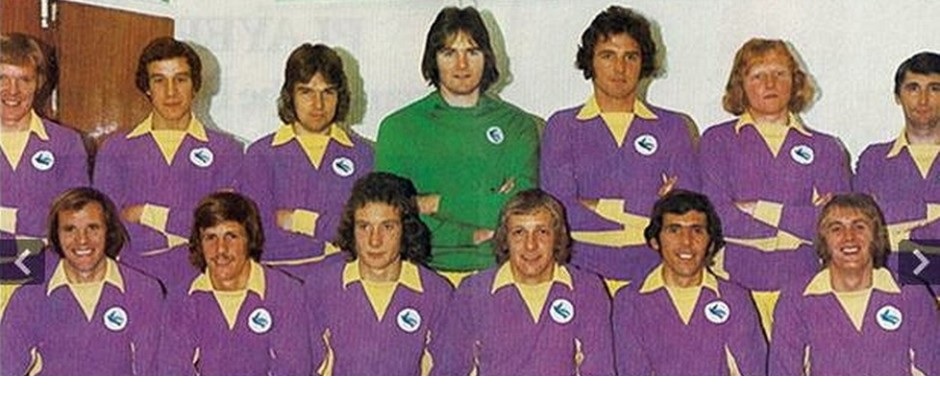
Our fixtures so far for this season have followed an odd pattern. At home,
we’re going to face the three sides (QPR, Sheffield Wednesday and Rotherham)
who were probably the trio most tipped to go down by pundits who had a go at
predicting how the table would end up in May in our first five games.Add in
winless Swansea and a Coventry side still looking for their second victory of
the campaign and it’s safe to do say that we could have had a more testing
introduction to our season at Cardiff City Stadium.
By total contrast, we are having to endure the away start from hell!
Leicester, most people’s tip for the title, Leeds and Ipswich were all fancied
for a top six finish and now on Sunday we go on our longest away trip of the
season to face a Sunderland side that reached the Play Off’s last season and
are probably the form team in the division on the back of three straight wins
gained with a goals tally of 11-2 in their favour.
Based on what we’ve seen so far, City will be very competitive like they
certainly were at Leicester and Ipswich (ironically, the one game we didn’t
lose, at Leeds, was probably the worst we’ve played in an away game so far). Realistically
however, we’ll be kept waiting a bit longer for our first away win in the
league – the very impressive victory by a virtual second eleven at a previously
unbeaten Birmingham in the League Cup should not be forgotten mind.
Here’s seven Sunderland related questions going back to the 1960s with the
answers to be posted on here on Monday.
60s.Born in a capital city, this defender was a one club man, following an
unsuccessful trial with Burnley as a teenager, who was forced to retire from
the game because of back problems at the age of thirty one. He made his debut
for Sunderland at eighteen in a game at Plymouth (the city he was to pass away
in some sixty years later) and became a regular for them for around a dozen
years.
He stayed in the game after retirement mostly as an Assistant manager, but
when he was given the manager’s role on a temporary basis at another northern
club, he did such a good job in steering them to a sixth place finish from what
had been a relegation struggle until he took over, that he more or less had to
be given the job on a full time basis. However, the feeling that he was only
keeping the seat warm for someone else was given credence when he was sacked
just five games into the nest season.
Internationally, he played more than thirty times for his country and was
also used twice as an Assistant to the manager when they competed in a World
Cup Finals tournament, who am I describing?
70s. Judging by the fact that this Lancastrian forward had three spells with
his home town club in a career which saw him represent another dozen teams, the
lure of home was always strong. The first of those three spells at home got
Sunderland interested and he was soon snapped up by them as a teenager. Over
two seasons he became a pretty regular starter in the Second Division for the
Roker Park side with a good, if not spectacular, goalscoring record. His next
move took him to the First Division where he was supposed to be a replacement
for a player who was scoring goals for England in a World Cup Finals tournament
a decade earlier, but our man’s upward mobility ground to a halt to such an
extent that he was released on a free transfer a year later.
After that, he became the archetypal lower league journeyman, although in
amongst all of the free transfer moves was a return home which went well in
terms of goalscoring at least. After this, apart from brief spells to the north
west and north east, all of his wandering was done in the Lancashire/Cheshire
area.
One consequence of having so many clubs was that he has a claim to fame –
apparently, he has turned out for more FA Cup winning clubs than any playerr in
the game, but can you name him?
80s. Sounds blunt and dull to me!
90s. Lend my villa to European leader. (4,8)
00s. This defender was setting records on the international stage as a
youngster (it only lasted for one game), but his club career was mundane by
comparison.. He appeared for Sunderland against City in a losing cause during
this decade before a possibly unique occurrence of him being loaned to the same
club three times in succession without the move ever becoming a permanent one.
Instead, he moved to rivals of ours before, finally, signing for the club he’d
been loaned to so often some five years after his last temporary spell there.
There was a sixth loan move of his career to shoe makers before a departure
from the game at twenty nine which offered brutal confirmation of youthful
promise coming to nothing. Who is he?
10s. Something of a lingering presence in the background in the very
watchable Sunderland documentary series from a few years back, he was capped by
England at the age of twenty, in February 2017, he ended a drought of 1,370
days without winning a Premier League game in which he had started the match
and he’s now playing in Australia – who?
20s. A knave, yet a treasure at the same time
Answers
60s. Belfast born Martin Harvey made more than three hundred league appearances for Sunderland before injury forced him to retire in 1971. He was manager of Carlise for a while and also did caretaker jobs at Plymouth on a couple of occasions besides being Billy Bingham’s Assistant Manager with Northern Ireland at the 1982 and 1986 World Cups.
70s. Wayne Entwhistle has three spells with his home town club, Bury. Sunderland paid £30,000 for him as an eighteen year old and he was signed by Leeds two years later as a potential replacement for Allan Clarke, but the First Division was a step too far for Entwhistle who dropped out of league football for a while before a second spell a Bury where his goalscoring record ensured that there were plenty of suitors when he, invariably, became available as he tried unsuccessfully, to live up to his early promise.
However, it seems no one else can match Entwhistle’s feat of playing for eight clubs that have won the FA Cup in their time (Bury, Sunderland, Leeds, Blackpool, Wimbledon, Bolton, Burnley and Wigan).
80s. Frank Gray.
90s. Andy Melville.
00s. For a short while, Lewin Nyatanga was Wales’ youngest ever player, the appearance of a certain Gareth Bale in Nyatanga’s second match for his adopted country ended that record. Myatanga was loaned by Derby to Sunderland in the autumn of 2006 and was in their side which was beaten 2-1 by us at the Stadium of Light. Later that season, Nyatanga was loaned to Barnsley for the first time, before two more of them followed in the next year. However, when Nyatanga moved on from Derby, it was to Bristol City in 2008 and he only got to sign for Barnsley some five years later. After that, there was a loan to Northampton, but nothing after that once his Barnsley contract ran out.
10s. Jack Rodwell.
20s. Jack Diamond.



